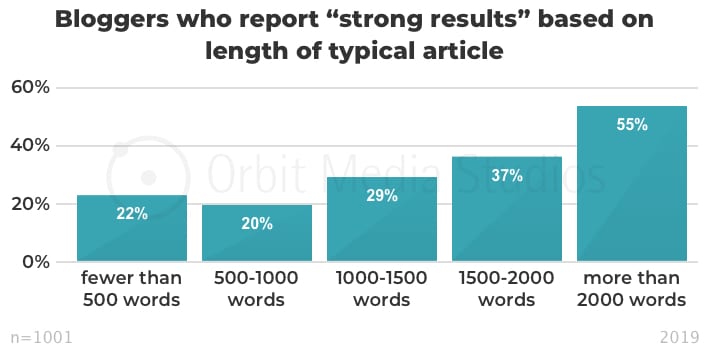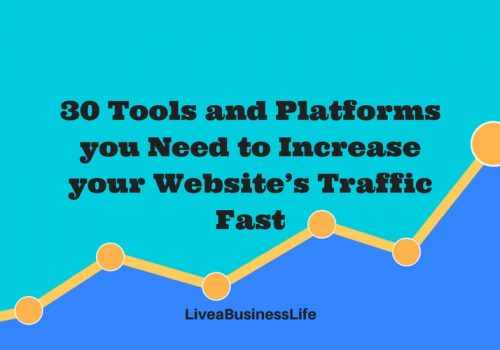
How to Start and Grow your Blog Like a Pro (2021 Edition)
March 11, 2020
Teachable Courses: what you need to know before starting
July 10, 2020Blogging has become extremely hard in the past few years. There is too much competition out there and too much noise to get your voice through.
In the US alone, the number of bloggers is predicted to reach 31.7 million in 2020. There are more than 1.7 billion websites online and these publish more than 5 million posts per day.
It’s logical to stop for a moment and think whether you have a chance at succeeding in blogging before you ever get into it.
Source: Statista
Table of Contents
Is blogging worth it?
Short answer is Yes! Blogging is still worth it. The fact that competition in high in blogging is actually a sign of its profitability. It’s a cheap creative outlet for individuals to express their thoughts and feelings and enjoy a community of supporters. It’s also a good channel for business growth and making money. Businesses who blog get more leads and more positive return on investment than those who don’t. Websites that have a blog receive way more backlinks from other websites (which will in return increase their website traffic). And some solo bloggers are making more than $50,000 per month from their blogs.
Thing is … it’s just a little bit more complicated than it used to be a few years ago.
To grasp the full scope of how complicated blogging is today, let’s consider Copyblogger’s blog post about content marketing back in 2009.
Quite simple, right? Three paragraphs explaining the basics and that’s it.
Now let’s take a look at the current state of the same blog post today.

Quite complicated.
A +5000-word “epic” blog post that covers everything from the most basic concepts in content marketing (such as the types of content) to the most complicated (such as CRO).
The goal here is to produce the kind of blog post that can’t be outranked by other competitors (or the kind of content that outranks a currently-superior blog post) because guess what? There’s more competition than it used to be back in 2009 when the article first came out.
If you’re serious about blogging and want to achieve real results, you need to know how to beat competition. Follow along and you’ll learn how to do it.
Why is blogging worth it?
There are many reasons why people blog. Some of the most popular ones are
- making a change through political, environmental, societal, and cultural activism
- sharing knowledge and establishing your expertise,
- organizing and managing your mental and physical well-being,
- making money through blogging,
- and promoting your business.
1- Making a change:
Blogging could be an outlet for activists to form their communities and bring about changes in different areas. Political activists, environmental enthusiasts, and cultural icons, all have blogs through which they share their ideas with their audience.
2- Sharing knowledge and building authority:
Authors and experts from different lines use blogging to share their knowledge with people and help them. This is both a positive act to educate people and help them overcome their problems, and a way to establish authority and form a loyal community.
Have any questions regarding any topic in any area? Just hop over a search engine, type what you have in mind, and find answers immediately. Google is doing its best to “organise the world’s information and make it universally accessible and useful” as they put it.
3- Organizing your thoughts and emotions:
People talk less about the self-care benefits of blogging these days.
Blogging is a form of journaling and as researchers in Michigan university explain “journaling can be a great stress reducer through organizing one’s thoughts, clearing one’s mind and facilitating problem solving”. Blogging gets you to manage your time and have more concentration on a task.
It also helps you to be conscious about your states of mind, manage your emotions, offer solutions to a specific problem, and challenge your mindsets, all of which are necessary for a healthy mental and physical life.
4- Making money blogging:
The most exciting part of starting a blog is making money from it. Some blogs are making more than a fortune for their owners. Huffpost.com generates 14 million dollars per month, Engadget.com generates $5.5 million/month, Mashable.com nets $2 million/month, etc.
Does it necessarily need to be corporate companies to make serious money from blogs? No! Solo bloggers are making good fortunes as well. John Lee Dumas (Eofire.com), Pat Flynn (SmartPassiveIncome), Melyssa Griffin (MelyssaGriffin.com) and Adam Enfroy (AdamEnfroy.com) are all making $+70K/month consistently through blogging.
It’s also worth mentioning that although most people start blogging to make money only 31% of bloggers make any money from their blogs whatsoever. Only 2% of bloggers make over $150k per year
5- Promoting your business:
Blogging is one of the most popular marketing channels for businesses. Blogging drives traffic to your website and increases awareness about your business. Data shows:
- Marketers who have a special focus on blogging are 13X more likely to see positive ROI.
- B2B marketers who blog have 67% more leads than the ones that don’t.
- Companies that publish 16 blog posts are more likely to generate 4.5X more leads that the ones that generate 4 or less posts per month.
- Better blog content can drive traffic to a website by 2000%.
Bogging vs. literally all other marketing channels:
Right at the beginning of this blog post, I mentioned copyblogger’s article about “content marketing”.
The idea of content marketing is nothing new or fancy. It’s a strategy that stands against pervasive advertising.
Instead of pushing your messages restlessly to your audience, content marketing focuses on publishing “informative content that is relevant, interesting, and useful to your audience.”
Obviously the goal is to help customers make more informative decisions and get their problems solved.
Before any other content types like images and videos were popular on the internet, written words (aka. Blog posts) were the most popular kind of content that could really drive any substantial results for internet marketers.
Blogs were literally the most used marketing channels by businesses. Today the landscape has changed dramatically. In order for blog posts to achieve real results, they need help from other marketing channels as well. Here are a few of these channels:
1- Search Engines:
Almost every blogger I know has made a mistake when starting their blog in the first place. We fell into a bloggers’ trap we call “spray and pray” marketing.
This is a strategy through which you produce any kind of content that you think your audience finds interesting (spray) and hope that it will get the kind of traction you think it deserves (pray).
The more you go on with this strategy, the more you realize you’re seeing no results but are getting more and more exhausted over time. There is something wrong with this strategy.
The blog posts were not getting consistent traffic, no organic traffic whatsoever. This is true especially in niches that are more crowded than others.
Driving organic traffic to your content needs hard work. The first thing you should do is research the topics you should write about in the form of “keywords”. This step is commonly known as keyword research.
The second step is optimizing blog posts for those keywords. And the third step is building links to them. Consistently doing this process will result in steady organic traffic to your content.
2- Social media:
The value of social media lies in interacting with the audience. If search engines are what drive your target audience to your website, social media is where you can talk with your audience and get to know them. The more people interact with your content, and the more they share it, the more traffic it’s going to drive to your blog.
3- Email marketing:
It’s true that mail marketing has the highest ROI among other marketing channels but building an email list is nearly impossible without the help of blogging.
In fact for many people, the ultimate goal for driving traffic to their blogs is building an email list and marketing to them actively till they purchase from them, the act commonly known as lead generation.
Businesses that blog get nearly 70% more leads that the ones that don’t.
4- Paid advertising:
The power of organic reach has dwindled in the past years. Posts on social media are only shown to a fraction of your followers, and Google’s search results are full of ads.
It seems that these platforms are in fact more interested in growing their revenue rather than organizing “the world’s information and make[ing] it universally accessible and useful”.
Spending some money on paid advertising, whether through social media or search engines, to promote your content is a logical move to boost traffic and increase sales.
Who is blogging for?
Anyone with any level of knowledge or expertise who is interested in sharing their knowledge with the world could start a blog.
Blogging could work for you if you’re interested in building your authority and attracting a community of supporters; if you’re a freelancer or solopreneur who’s aim is promote his products or services and never run out of well-to-do customers; or if you own a business and need customers to keep up and running.
But most important of all, blogging is for people who take it seriously and spend time and money on it. The ideal blog post length in 2020 is 2,100-2,400 words. Bloggers that see results from blogging spend +6 hours per post and a lot more to actively promote their blogs.
Blogging is a long game:
Even if you do everything right from keyword research to promotion, how long will it take to see results from blogging?
It really depends on your niche and how well you’re promoting your blog but if you’re new to blogging, you need to be patient at least for the first two years of your career.
Two years is the time through which you can test the waters and get to know your audience, what topics to cover, how to monetize your blog consistently, and how to promote your content accordingly.
Assuming that blogging success means great organic traffic from Google, reader engagement with your content, and making a steady full income from your blog, experts recommend the following steps to grow your blog.
How to be successful at blogging:
You can definitely get successful sooner than the two-year time frame if you know the tactics and more importantly how to implement them. Here’s what you have to do:
1- Choose a lucrative niche:
If you’re starting as a new blogger and want to make money blogging, your career should get started with a lucrative niche. Unless you’re extremely passionate about a topic and can definitely be an expert in it, you need to consider the financial potential of a niche before getting into it.
1- Brainstorm some niche ideas based on what you know and if you care enough to research about the topic and come up with blog posts ideas consistently.
2- Research and see if your niche ideas have enough audience to grow. Chances are niches with a huge audience base are already crowded. So the bigger the audience, the harder to succeed. Use keyword research tools to find out whether the search volume for your niche keywords are significant enough.
3- Consider the monetary potential of your niche. Research the products in your niche and find out whether there’s enough demand for niche-related products. Niches that are somehow related to businesses (B2B niches) are obviously more lucrative than the ones targeted at typical customers (B2C). Check out different affiliate programs and consider the potential for your affiliate income based on the products offered in them.
2- Research keywords:
After choosing a lucrative niche, the next step is to research keywords and produce content to generate steady traffic to your website.
You need keyword research tools to collect data about the search volume of the keywords, and the level of competition for them.
There are lots of keyword research tools in the market and all of them do more or less the same thing. You enter your keyword and check out its search volume and the websites that rank for it to realize how to outrank them by creating better content and building more links.
You could also enter your rather generic keywords (seed keywords — for example “content marketing”) which are very competitive and rather hard to rank for, and the keyword research tools give you keyword suggestions.
3- Write a blog post:
Well, this is the step everyone’s been waiting for: writing a blog post. This is where the real magic happens. When writing a blog post, you need to consider two things:
1- your post should be optimized for Google (on-page SEO)
2- your post should be appealing to readers
Here are some steps to optimize your page for Google:
1- Use your keywords in the URL of the post, its meta description, its title, a few of your H2 and H3 tags if possible, in the first 150 words of your post, and a few times more in the body of your post.
2- Spend time to research your topic and produce comprehensive posts. As mentioned earlier, longer blog posts have higher chances of ranking for different keywords.
3- Improve your website’s speed. It’s an important ranking factor.

To make sure your post is appealing to your audience, take time to get to know your audience, write unique blog posts, improve your writing skills, and use images and videos when possible. Here’s the part where you should really showcase your expertise and make people fall in love with your content.
4- Build links:
Wrong promotion is the main reason why most bloggers fail. The blog post you just published needs links to rank for your target keyword and get consistent traffic.
Basically if your content is high quality, natural links will come your way. People will find your content interesting and mention you in their content. But you’d still need to do a lot of promoting to reach the right people.
You need to actively build links to your content. To do this you need to reach out to other bloggers and offer your content, the process that’s called “blogger outreach”. This is a time-consuming process. You need to make a list of the websites to reach out to, contact the owner/content marketer/blogger in charge, and offer them to either publish a guest post by you or place your link in one of their already published posts.
The process is more complicated than before because bloggers are receiving a lot of these emails and are picky who to respond to. So you might want to have a perfect pitch and great piece of content they want to link back to.
Guest posting is also a very good way to build links. You you need to know that preparing guest posts for high authority websites is a long process. In many cases they expect you to target a keyword they haven’t targeted yet, write long-form posts, and promote them afterwards.
You need to spend time to build a network of trusted bloggers, and help them to produce high quality content for their blogs and promote them. Obviously they will do the same for you.
In a nutshell:
Blogging has always been a lucrative path for both individuals and businesses. Using blogging, individuals can establish their subject matter authority, build a community of readers, and drive consistent organic traffic to their websites. Monetization opportunities are a lot for individuals from ads, sponsored posts, and affiliate marketing, to freelancing and consulting services (many bloggers actually do all of these).
For businesses, blogging is basically the main way to get consistent traffic to their websites, and increase sales.
So it’s quite natural to see a soaring interest in blogging and obviously an increase in the number of competitors. Today, blogging is more than publishing “epic” blog posts. The winning factor is how well you can promote your content and get links to them.





